The Moustached Journalist says;
Patrick Omorodion, a famous sports journalist contributed a resounding perspective on the historicalization of women’s football in Nigeria in his column titled Re-engineering the NWFL. He postulated that it was at first seen purely as a recreational activity and was mostly done to take the girl-child out of the streets.
Those were the days when there was no functional league for the players to exhibit their skills then. The only avenue available for the young girls then was occasional friendly matches between a few female-based football clubs like Simbiat Abiola Babes, Omidiran Babes, Jegede Babes, Ufuoma Babes, Larry Angels, Kakanfo Babes and others.
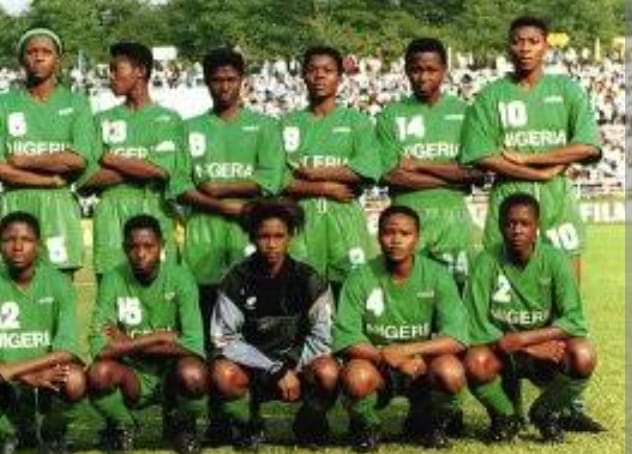
Although, it fully started in 1978 with the foundation of the Nigeria Female Football Organising Association (NIFFOA), was later renamed Nigeria Female Football Proprietors Associations (NIFFPA) in 1979. However, the story of women’s football changed when the Federation of International Football Association (FIFA) introduced the women’s version of the World Cup in 1991. With that in sight, the reformed Nigeria Football Association (NFA) had to organize a national championship in 1990 to scout for the first branded set of players for the Nigeria’s women senior national team, Super Falcons.
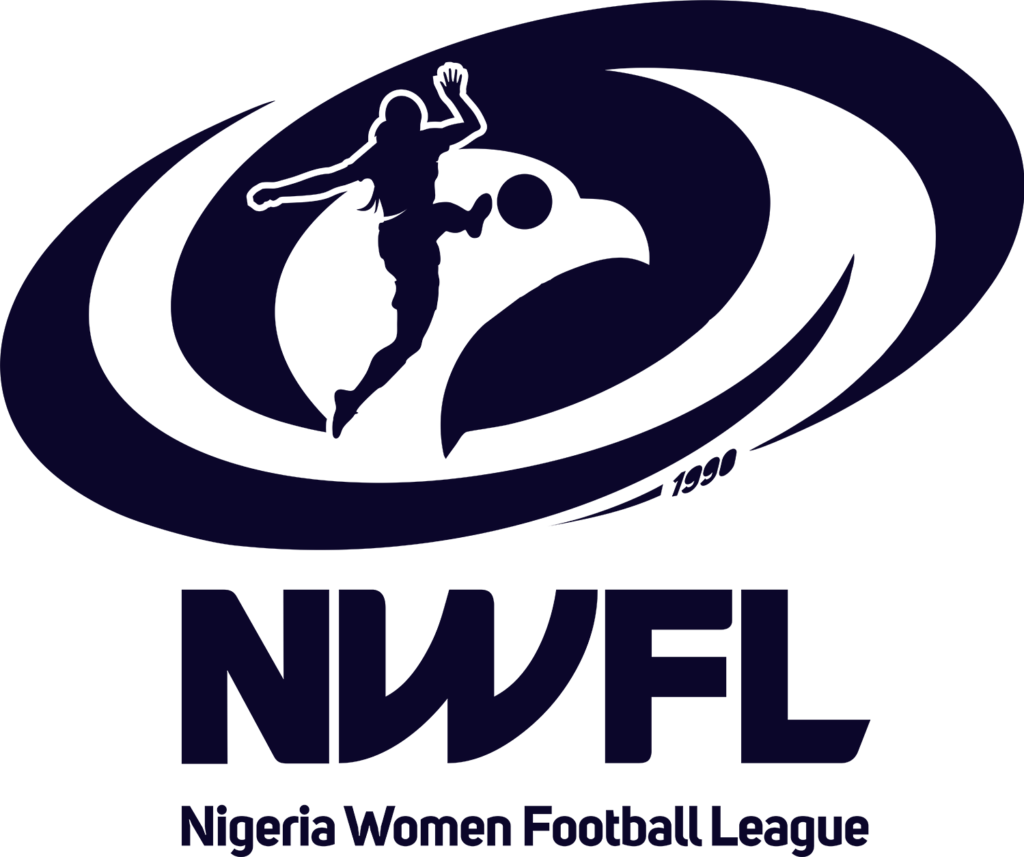
Moreover, coupled with the fact that Nigeria was already having functional football teams, the country easily emerged as Africa’s sole representative and dominated the rest of Africa in women’s football. It was not necessarily because Nigeria had a strong women’s league but for the fact that the country started earlier than the rest. The gap between Nigeria and the rest of Africa started closing up when other countries like South Africa, Ghana and Cameroon also established a league for women football.
When the Nigeria Football Federation (NFF) thought about a functional league for women football, apart from Simbiat Abiola who didn’t serve on the NFF Board; Princess Bola Jegede, Dr. Gina Yeseibo and Alhaja Ayo Omidiran were there together to represent the interest of women at one time or the other.
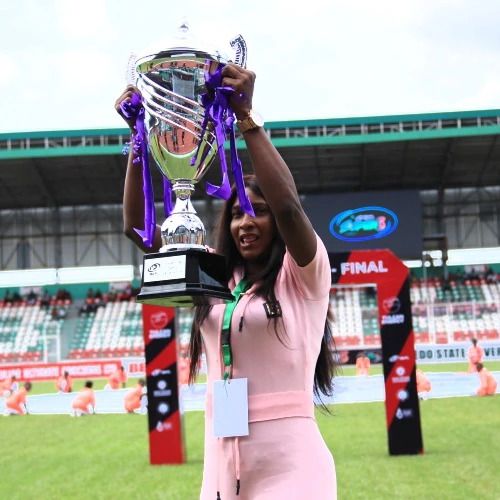
The creation of the Nigeria Women Football League (NWFL) as the governing body of professional women’s association football in Nigeria. This landmarkable feat inspired by the NFF kick-started a brand new aura of evolution in women’s football in Nigeria. Fast forward to many years after, women’s football in the country began to head downstream. In 2016, Nigerians cried out to the topmost echelon of the country’s football authorities with a trendy hashtag #SaveTheNWFL on X (formerly known as Twitter) in order to rescue the women’s football league from losing its importance.
This prompted a new beginning with the appointment of one of Nigeria’s foremost sports journalists, Aisha Falode as its chairperson in November 2017. The retaliation taken by the Amaju Pinnick-led NFF Board birthed a revival, once again, boosted confidence and called for repositioning of the NWFL.
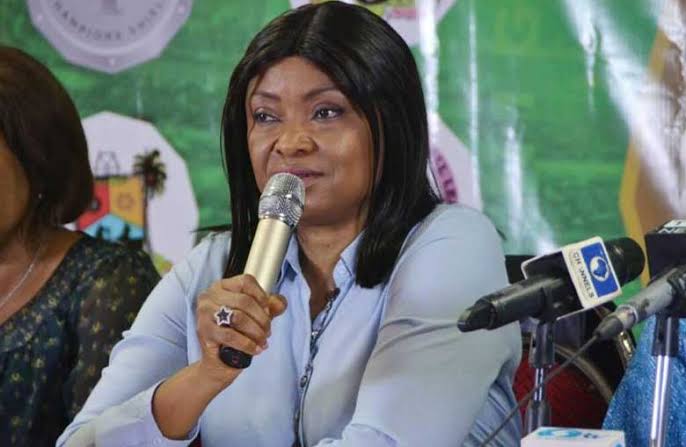
Three years into her leadership, she inspired hope among Nigerians with the announcement of re-branding the women’s football league, by unveiling a new logo and renaming the three tiers of the league under the tutelage of the NWFL: The Nigeria Women Premier League is now known as the NWFL Premiership, the second-tier league known as NWFL Championship (formerly NWFL Pro-League) while the discontinued third-tier division later became the NWFL Nationwide (formerly NWFL Amateur League).
After Aisha Falode’s tenure had come to its end, there was an urgent call for new helmsman of the NWFL to make women’s football thrive in the country. The change of guard took place in July 2023 when the President of NFF, Alhaji Ibrahim Musa Gasau appointed one of Nigeria’s finest sports marketing lead, Nkechi Obi and was saddled with the responsibility of driving further the growth of professional women’s football in Nigeria.
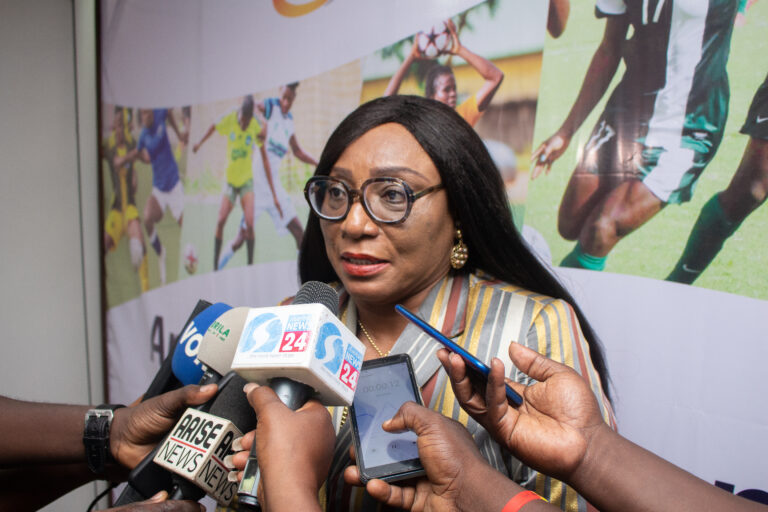
It is now her turn to contribute own quota to the development of the women’s game. One doesn’t have to be told that she has hit the ground running with tremendous affirmations to not only grow the level of female participation in football but improve on the quality and capacity of the game as well. She is no doubt ready to punch above her weight undertaking the task ahead, stating that women’s football is bound to enjoy a renaissance while her immediate target is to get a functional and standard women’s football league in Nigeria.
In line with her aspirations, the new NWFL board in its drive to make the league a sustainable one introduced strategic plans to drive the women’s league at the 2023 FIFA Women’s World Cup watch party on 20th of August and is aimed at tracking the development growth, boosting the business and commercial value, and create sustainable grassroots development for players in over 150 clubs in the country, tagged, ‘Women’s Football Rising’ which started in October.

From a professional football perspective, this laudable and ambitious but realisable was unveiled as a tool to foster gender equality, and livelihood for women, which include Football and the Girl Child, Sisterhood Campaign, He4She Campaign and the Class to Pitch Collaboration with Sports Business Institute.
With Nkechi Obi lining up a team of eight professionals to help achieve her vision of promoting positive dialogue around the girl-child through women’s football development in Nigeria and empower women through the beautiful sport of football, all while aligning with FIFA’s five pillars of football development.
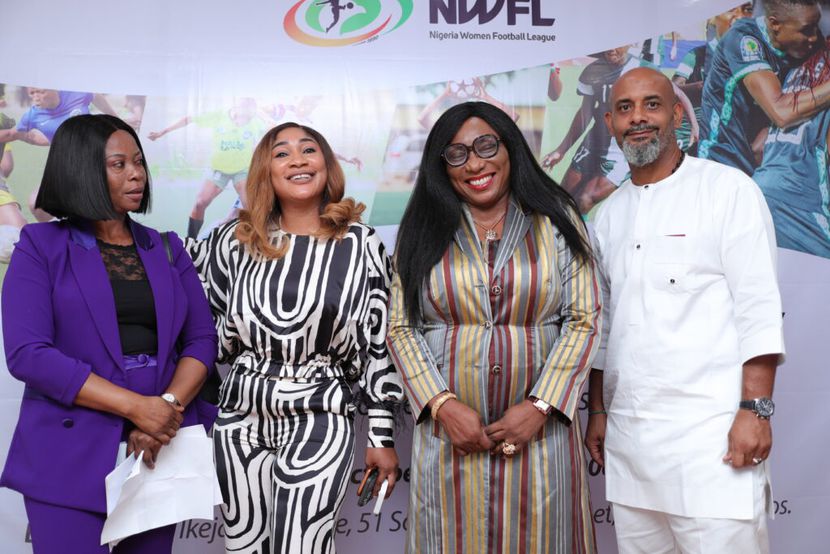
The NFF President, Alhaji Ibrahim Musa Gasau, was represented by Ogun State Football Association (FA) chairman and NFF board member, Alhaji Ganiyu Majekodunmi at the NWFL Annual General Assembly (AGA) 2023 in Lagos, and was welcomed by the chairperson of NWFL, Nkechi Obi and her board, said that a new era has started in Nigerian women’s football and will flourish to its full potential.
While indicating that he is certain the new board is capable of advancing women’s football in Nigeria to new heights. Majekodunmi also confirmed that the NFF has directed all State FAs to give more priority to underage women’s football especially U-13 and U-15 categories.
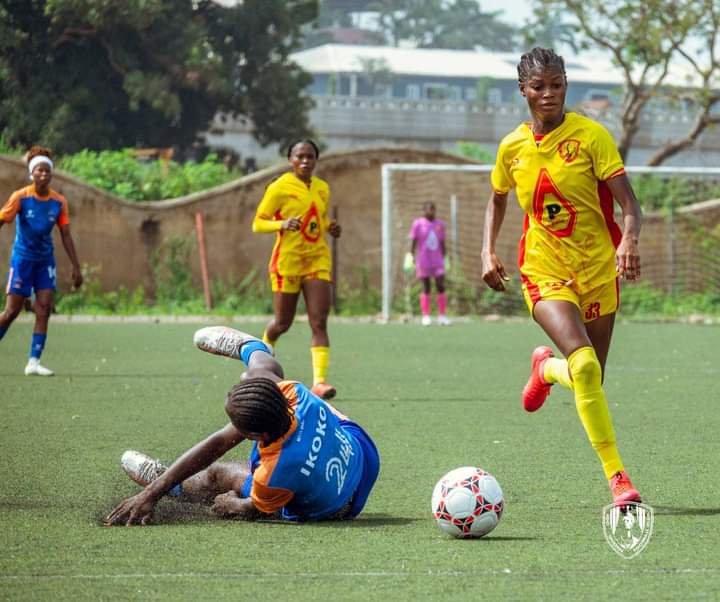
However, Nkechi Obi disclosed that Class to Pitch program is also part of the development programmes in the Women’s Football Rising initiatives that are aimed at restructuring the league and ensuring positive growth in women’s football in Nigeria. With at least 180 clubs set to participate from the grassroots annually and that every effort would be made to support the local leagues at the state level to make it work.
In addition, it will include development training programmes for various actors such as training for female coaches, referees and media teams, and capacity development training in governance, management, and administration for club administrators.
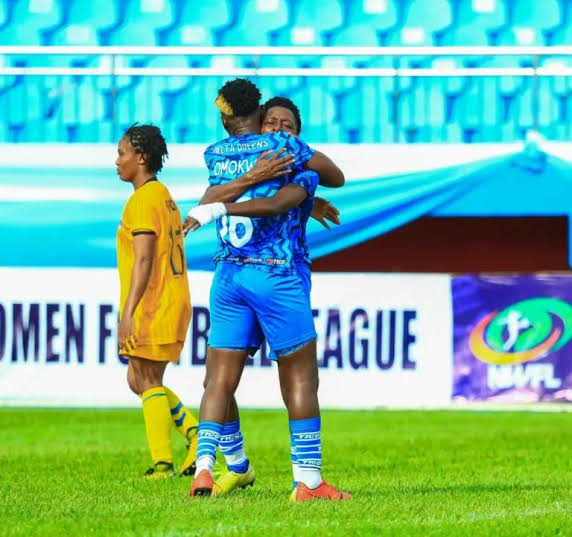
Thereafter, a career orientation program called players rising for all the female players would be drafted by the NWFL Board to further strengthen the bonding in women’s game in the country. One important thing is that the Nkechi Obi-led NWFL Board through the Class to Pitch program would ensure that there are more female coaches in the league and also encourage women’s referees to attend regular referee programmes while players personal development, club development and the media development as other aspects of the Class to Pitch program.
It was also disclosed at the 2023 AGA that under the aspect of club development, La Liga will roll out Club Tweaning programme where women’s football clubs that conform with the club licensing procedures in the area of governance structure, administration and management such clubs would be tweaned with a club in Spain.
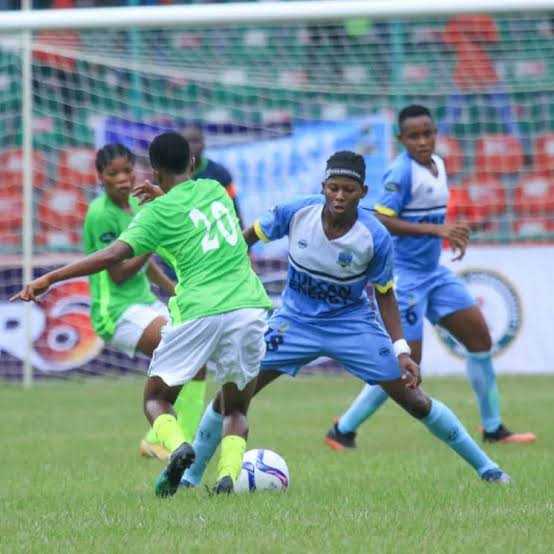
Photo Credit: @thenwfl on X.
While emphasizing on the benefits of the partnership with LaLiga, the NWFL chairperson said that it is to help create an avenue for players in the Nigeria’s women top-flight football league to be able to secure deals in top Spanish clubs. The local clubs, in return, too will benefit if they are qualified as rated by La Liga representatives.
Obi also revealed plans to unveil major stakeholders in the business world who would help drive home the needed cash to run women’s football in the country. She further explained that the league would need about N700 million to run it and put in place the kind of infrastructure needed to succeed. This initiative will help secure at least 30% of this expected income. After all said and done, there must be a need to create a viable opportunity to allow grassroots development in women’s football with attention on clubs’ developmental programs.
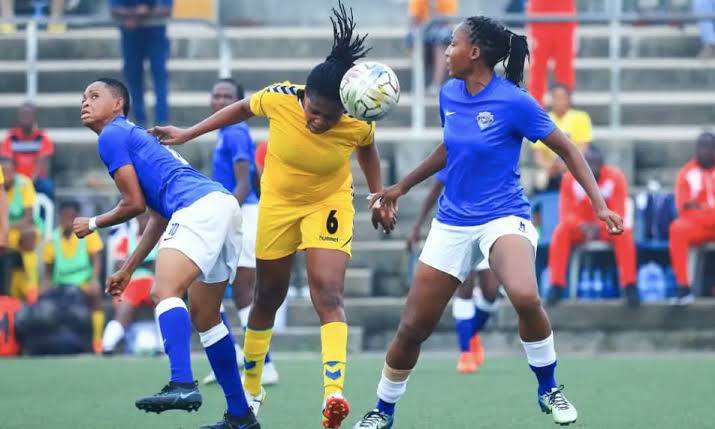
Meanwhile, the rapid expansion of women’s football globally and in Africa offers an opportunity to address the lack of capacity in women’s football clubs, the shortage of volunteers, poor access to quality facilities, and gaps in the player pathway in Nigeria. Business people can create new or buy into existing clubs to intentionally drive a join ed-up approach by all stakeholders with the girl-player at the heart of the plan. This will encourage young schoolgirls to join clubs and offer them an unbroken pathway to realise their aspirations.
She expressed her take on how players continue to ignite a spark of inspiration that has reverberated through every corner of our nation. From the grassroots to the pinnacle of the sport, their triumphs in both the national team and professional clubs have energised a community of over 5,000 players, coaches, and officials in the women’s football league in Nigeria.
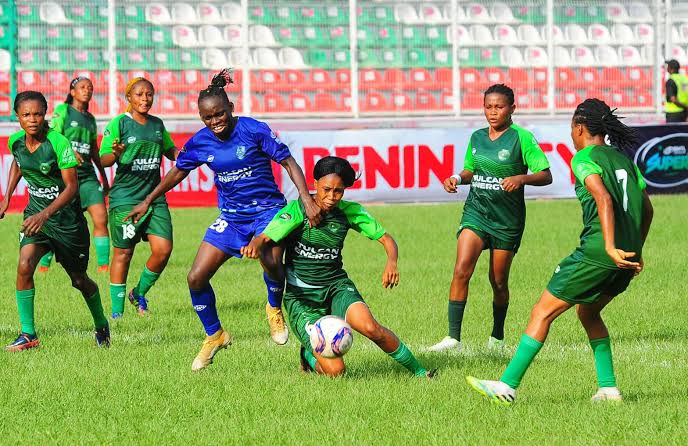
There are increasing opportunities for our players to play professionally in major leagues across the world, but we need to understand that these major leagues cannot fully absorb our talents, and there is therefore a need to create a viable career pathway for talents coming out of Nigeria. She also said that the new NWFL Board recognise that the success in empowering women through sports and driving economic growth depends on the leadership’s ability to create a professional women’s football ecosystem in Nigeria.
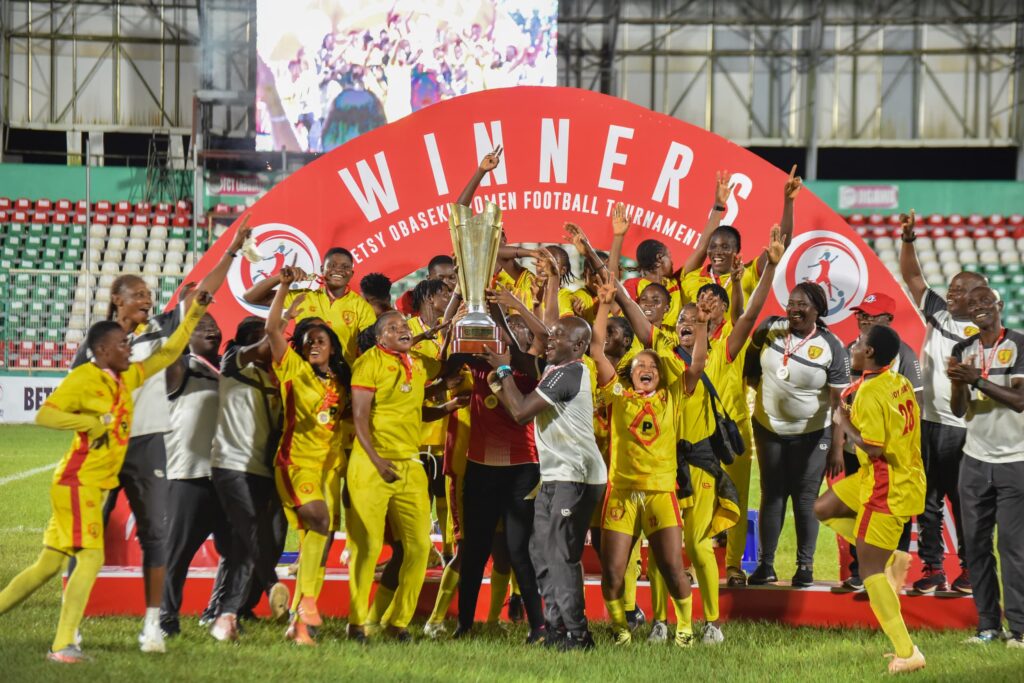
Globally, clubs are at the heart of football development, and a club development strategy should therefore be at the very foundation for the development of women’s football in Nigeria, as the most sustainable model to drive professionalism in the game and achieve women’s empowerment and economic growth through sports. Moreover, a developmental program called “Football and the Girl Child” will be introduced to encourage young girls across the six geopolitical zones and the Federal Capital Territory (FCT).
She explained that the NWFL can be in the minds of football lovers in the country if the stakeholders, players, and coaches are intentional in driving the league. Answering a question on the goal of getting 1 million viewers, Obi said the league has over 5,000 players, and a social media campaign via their social media handles can raise awareness about the league. While discussing the marketing and funding of the league, she continued that the league will adopt a “He4She” campaign and “Sisterhood” to organise crowdfunding.
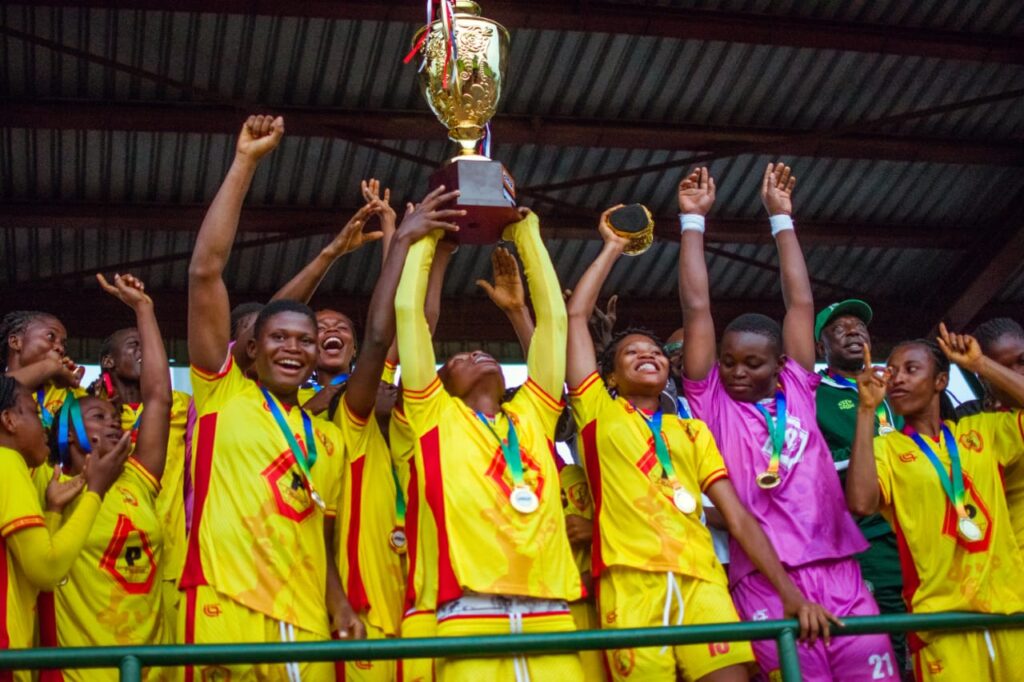
In a communique released after the yearly general meeting in October 2023, the board approved the expansion of the NWFL Premiership from 14 to 16 teams, and that of the Championship from 12 to 20 teams with the approval of scrapping the Nationwide League and replace with the State Leagues.
The congress confirmed the promotion of Dannaz Ladies, Sunshine Queens, Lakeside Queens and Ekiti Queens to the NWFL Premiership from the Championship and the relegation of two clubs, Ibom Angels and Osun Babes to the NWFL Championship. The league body adopted a two-group league format of A and B for the 2023/24 NWFL Premiership season. Meanwhile, the NWFL will be making a historic comeback on the screen since its inception in 1990 with all matches of the new season set to be aired by the league’s official broadcast partners, Afrosport.

The Chairman of the NWFL, Nkechi Obi, at the official kick-off ceremony of the sixth edition of the Sheroes Cup held in September in Abuja, promised that her administration have plans for players welfare. She stated that in the ongoing season, the league management board will be unveiling a welfare package for players, demonstrating our commitment to the growth of women’s football.
With this new drive, I believe that Aisha Falode’s legacies and immense contributions to the development of women’s football in Nigeria will be exceedingly replicated by the Nkechi Obi-led NWFL Board, should the NFF administration of Alhaji Ibrahim Musa Gasau and the Honourable Minister of Youth & Sports Development, Senator John Owan Enoh keen on the goal-driven and insightful leadership of the Nigeria Women Football League.
